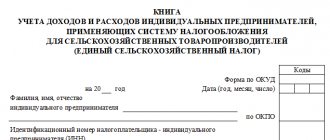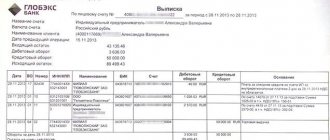Certification of a professional accountant - a mandatory requirement of law or a practical necessity? Some accountants believe that professional skills acquired in the process of working life are much more important than having a “crust”.
But sooner or later, an accountant faces the question of improving professional qualifications and developing skills as key components of his career growth. The most effective way to do this is to become a certified professional accountant.
Where to get certified as a professional accountant
To obtain a professional accountant certificate, you need to undergo training at the Institute of Professional Accountants (IPB).
IPB is an association of accountants and auditors in the Russian Federation. Has been certifying accountants since 1997.
Having passed the IPB exam, the accountant receives a certificate confirming his high qualifications.
Training and certification itself can be completed not only at the IPB. Now there are professional training centers that have a license to carry out educational activities and are accredited by the IPB RF. This gives them the right to issue and endorse professional accountant certification.
Why do you need a professional accountant certificate?
In recent years, the work of an accountant has become significantly more complicated. And this is primarily due to the large number of changes in legislation, which can be quite difficult to keep track of.
And even more so, the employer has such a problem. When hiring an accountant, he wants to be sure of his professionalism. It is at such moments that a certificate of a professional accountant and membership in the IPA of the Russian Federation are a guarantee of the high level of the hired specialist.
Also, one should not forget that in order to renew the validity of the certificate, it is necessary to improve one’s qualifications (pass 40 hours of training annually), which undoubtedly increases the level of confidence in the accountant.
It is no secret that many people have a desire to go and work abroad. And if you want to find a job in your specialty in a new place, you will simply need the IPB RF certificate. The IPB is a full member of the International Federation of Accountants (IFAC), so to get a job abroad you will need to know the national language and take a course in local taxation.
Department of Additional Professional Education
ANNOTATION
to the advanced training program
Purpose of the program:
professional development of a specialist, ensuring compliance of his qualifications with the changing conditions of professional activity, taking into account his existing education, qualifications and practical experience.
The program is developed in accordance with the requirements of international educational standards established for professional accountants by the International Federation of Accountants (IFAC),
as well as the best global practices.
As a result of training, the student should:
- meet the qualification requirements specified in the current qualification reference books for the positions of chief accountant, accountant, head of financial and economic services, internal auditor, accounting and tax consultant, relevant professions and specialties;
- have the necessary knowledge and skills in the field of accounting and management accounting, taxation, legal regulation of business activities, auditing, financial management, accounting information and legal reference systems;
- effectively apply acquired knowledge in practice;
- be in demand in the labor market, have career growth and a decent income.
Program volume:
250 ac. hours
Form of study:
part-time
VIEW THE CURRICULUM OF THE ADVANCED PROGRAM PROGRAM
| Classroom lessons, distance learning | |||||||||
| No. | Name of sections | Labor intensity, hour | Total, hour | Lectures, hour | Laboratory work, hour | Practical classes, seminars, hour | Certification | SRS, hour | |
| hour | form of control | ||||||||
| 1 | Accounting | 74 | 74 | 54 | 0 | 20 | 0 | 0 | |
| 1.1 | Conceptual foundations of accounting in the Russian Federation. Legislative and other regulatory legal acts of the Russian Federation on accounting | 4 | 4 | 4 | 0 | 0 | 0 | 0 | |
| 1.2 | Accounting policy of the organization | 4 | 4 | 2 | 0 | 2 | 0 | 0 | |
| 1.3 | Fixed assets | 4 | 4 | 2 | 0 | 2 | 0 | 0 | |
| 1.4 | Profitable investments in material assets | 1 | 1 | 1 | 0 | 0 | 0 | 0 | |
| 1.5 | Intangible assets | 2 | 2 | 2 | 0 | 0 | 0 | 0 | |
| 1.6 | Research and development results | 2 | 2 | 2 | 0 | 0 | 0 | 0 | |
| 1.7 | Inventories | 3 | 3 | 3 | 0 | 0 | 0 | 0 | |
| 1.8 | Financial investments | 3 | 3 | 3 | 0 | 0 | 0 | 0 | |
| 1.9 | Cash | 2 | 2 | 2 | 0 | 0 | 0 | 0 | |
| 1.10 | Calculations | 12 | 12 | 6 | 0 | 6 | 0 | 0 | |
| 1.11 | Capital | 4 | 4 | 4 | 0 | 0 | 0 | 0 | |
| 1.12 | Accounting for production costs of products, works and services and sales costs | 8 | 8 | 4 | 0 | 4 | 0 | 0 | |
| 1.13 | Income and expenses, financial result of the reporting year | 4 | 4 | 2 | 0 | 2 | 0 | 0 | |
| 1.14 | Impact of changes in exchange rates | 4 | 4 | 4 | 0 | 0 | 0 | 0 | |
| 1.15 | State aid | 2 | 2 | 2 | 0 | 0 | 0 | 0 | |
| 1.16 | Composition, content, methodological basis for the formation and form of accounting (financial) reporting of an organization | 3 | 3 | 3 | 0 | 0 | 0 | 0 | |
| 1.17 | Main aspects of disclosure of other information in accounting (financial) statements | 4 | 4 | 4 | 0 | 0 | 0 | 0 | |
| 1.18 | The procedure for disclosing in the accounting (financial) statements of an organization the consequences of changes in accounting policies, estimated values, consequences of corrections | 4 | 4 | 2 | 0 | 2 | 0 | 0 | |
| 1.19 | Fundamental federal rules (standards) for the preparation and presentation of consolidated financial statements by a legal entity | 4 | 4 | 2 | 0 | 2 | 0 | 0 | |
| 2 | Management Accounting | 22 | 22 | 16 | 0 | 6 | 0 | 0 | |
| 2.1 | Fundamentals of Management Accounting | 2 | 2 | 2 | 0 | 0 | 0 | 0 | |
| 2.2 | Costs: purpose, behavior, accounting and classification | 4 | 4 | 3 | 0 | 1 | 0 | 0 | |
| 2.3 | Methods for accounting for production costs and calculating production costs | 6 | 6 | 4 | 0 | 2 | 0 | 0 | |
| 2.4 | Accounting policy of the organization for management accounting purposes | 4 | 4 | 3 | 0 | 1 | 0 | 0 | |
| 2.5 | Basics of planning and budgeting | 6 | 6 | 4 | 0 | 2 | 0 | 0 | |
| 3 | Taxation | 24 | 24 | 18 | 0 | 6 | 0 | 0 | |
| 3.1 | System of taxes and fees in the Russian Federation. Participants in tax relations | 4 | 4 | 4 | 0 | 0 | 0 | 0 | |
| 3.2 | Tax obligation and its execution. Tax control. Tax offenses and liability for their commission | 2 | 2 | 2 | 0 | 0 | 0 | 0 | |
| 3.3 | Value added tax | 5 | 5 | 2 | 0 | 3 | 0 | 0 | |
| 3.4 | Excise taxes | 1 | 1 | 1 | 0 | 0 | 0 | 0 | |
| 3.5 | Personal income tax | 1 | 1 | 1 | 0 | 0 | 0 | 0 | |
| 3.6 | Insurance premiums | 3 | 3 | 2 | 0 | 1 | 0 | 0 | |
| 3.7 | Corporate income tax | 3 | 3 | 2 | 0 | 1 | 0 | 0 | |
| 3.8 | Other taxes | 2 | 2 | 2 | 0 | 0 | 0 | 0 | |
| 3.9 | Simplified taxation system | 3 | 3 | 2 | 0 | 1 | 0 | 0 | |
| 4 | Legal regulation of economic activities | 24 | 24 | 18 | 0 | 6 | 0 | 0 | |
| 4.1 | General provisions | 1 | 1 | 1 | 0 | 0 | 0 | 0 | |
| 4.2 | Business entities | 2 | 2 | 2 | 0 | 0 | 0 | 0 | |
| 4.3 | Organizational and legal forms of legal entities that have the right to carry out entrepreneurial activities | 3 | 3 | 2 | 0 | 1 | 0 | 0 | |
| 4.4 | Property basis of entrepreneurial activity | 4 | 4 | 4 | 0 | 0 | 0 | 0 | |
| 4.5 | Transactions and agreements | 8 | 8 | 4 | 0 | 4 | 0 | 0 | |
| 4.6 | Fundamentals of legal regulation of labor relations | 4 | 4 | 3 | 0 | 1 | 0 | 0 | |
| 4.7 | Judicial protection of the rights of entrepreneurs. Alternative dispute resolution procedure | 2 | 2 | 2 | 0 | 0 | 0 | 0 | |
| 5 | Audit Basics | 12 | 12 | 12 | 0 | 0 | 0 | 0 | |
| 5.1 | Audit in the financial control system of the Russian Federation | 1 | 1 | 1 | 0 | 0 | 0 | 0 | |
| 5.2 | Regulatory regulation of auditing activities in the Russian Federation | 2 | 2 | 2 | 0 | 0 | 0 | 0 | |
| 5.3 | Organization of audit of financial (accounting) statements | 1 | 1 | 1 | 0 | 0 | 0 | 0 | |
| 5.4 | Assessment of distortions in financial (accounting) statements | 2 | 2 | 2 | 0 | 0 | 0 | 0 | |
| 5.5 | Audit evidence | 4 | 4 | 4 | 0 | 0 | 0 | 0 | |
| 5.6 | Final audit documents | 2 | 2 | 2 | 0 | 0 | 0 | 0 | |
| 6 | Financial management - 1 | 22 | 22 | 18 | 0 | 4 | 0 | 0 | |
| 6.1 | Introduction to Financial Management | 2 | 2 | 2 | 0 | 0 | 0 | 0 | |
| 6.2 | Management of current assets | 5 | 5 | 4 | 0 | 1 | 0 | 0 | |
| 6.3 | Results and performance management | 5 | 5 | 4 | 0 | 1 | 0 | 0 | |
| 6.4 | Investment management | 5 | 5 | 4 | 0 | 1 | 0 | 0 | |
| 6.5 | Capital Management | 5 | 5 | 4 | 0 | 1 | 0 | 0 | |
| 7 | Information and reference legal systems | 8 | 8 | 4 | 0 | 4 | 0 | 0 | |
| 7.1 | Information systems in economics | 1 | 1 | 1 | 0 | 0 | 0 | 0 | |
| 7.2 | Legal reference systems | 3 | 3 | 1 | 0 | 2 | 0 | 0 | |
| 7.3 | Accounting and auditing information systems | 3 | 3 | 1 | 0 | 2 | 0 | 0 | |
| 7.4 | Electronic document management information systems | 1 | 1 | 1 | 0 | 0 | 0 | 0 | |
| 8 | Professional values and ethics | 6 | 6 | 6 | 0 | 0 | 0 | 0 | |
| 8.1 | Professional values and ethics | 6 | 6 | 6 | 0 | 0 | 0 | 0 | |
| 9 | Individual accounting (financial) statements and their analysis | 54 | 54 | 16 | 0 | 38 | 0 | 0 | |
| 9.1 | Accounting (financial) statements as the main source of information for analyzing the financial condition of an organization | 6 | 6 | 4 | 0 | 2 | 0 | 0 | |
| 9.2 | Analysis of the accounting (financial) statements of the organization | 16 | 16 | 8 | 0 | 8 | 0 | 0 | |
| 9.3 | Presentation in the Balance Sheet, Statement of Financial Results, Statement of Cash Flows of typical business transactions with assets, | 32 | 32 | 4 | 0 | 28 | 0 | 0 | |
| 10.1 | Tests | 4 | 4 | 4 | 0 | 0 | 0 | 0 | |
| Total | 250 | 250 | 166 | 0 | 84 | 0 | 0 | ||
You can get information about the cost and sign up for training using the contacts below:
tel.8-499-158-43-90, 8-499-158-97-25
Email: [email protected]
How many types of certificates are there?
There are several types of certificates:
- Accountant certificate. It confirms the professional level of the employee performing the functions of an accountant, which must correspond to the qualifications of the professional standard “Accountant” of the 5th level.
- Chief accountant certificate. Confirms the professional level of the employee performing the functions of the chief accountant. This must be consistent with the Accountant Professional Standard Level 6 qualification.
- Certificate of the chief accountant of an organization that has separate divisions. This is a qualification of the 7th level of the professional standard “Accountant”.
Read about the new professional standard “Accountant” here.
To obtain a certificate, it is not enough to have the necessary knowledge and skills - there are certain qualification requirements that an individual must meet. They mainly relate to education and practical work experience. You can find out about them on the IPB Russia website in the “Get a certificate” section.
What else you need to know about preparing and conducting certification
You can prepare for the exam in several ways:
- take a full-time course at an accredited training center;
- take a distance course at an accredited training center;
- prepare yourself.
You can view and download the program for training professional accountants in ConsultantPlus. If you do not already have access to this legal system, a full access trial is available for free.
After you have chosen the training method that is suitable for you, you must become a full member of the IPB RF. To do this, you need to write an application, attach documents confirming your qualifications, and pay the entrance fee.
It is possible to take the exam at the territorial IPB or at an accredited training center.
The exam takes place in 2 stages:
1. Interim certification at the center where you studied.
2. Electronic testing on the IPB RF website. You receive the login details for the site from the accredited center where the training took place, or from the IPB representative office.
Testing for a chief accountant may include about 48 questions, for an accountant - 24 questions.
During the exam, you are allowed to use regulations and reporting forms.
Cost of education
CODE B 1. In person - 35,000 rubles.
2. Webinar — 30,000 rub. 3. Remotely - 30,000 rubles.
CODE A 1. In person - 18,000 rubles.
2. Webinar — 16,000 rub. 3. Remotely - 16,000 rubles.
NDS is not appearing.
The cost of training includes handouts developed by the BDO Unicon Training Center and coffee breaks.
The program includes intermediate tests and an internal exam.
The course price includes:
- lectures and practical classes;
- self-study materials;
- trial testing;
- information and consulting support;
- the ability to view all lectures in video format.
How to obtain a professional accountant certificate
After passing the exam, the Presidential Council of the IPB RF makes a decision to issue certificates based on the results obtained.
If the results are positive, you receive a certificate, and information about it is entered into the Unified Register.
The register gives the employer the right to collect data about the employee: when he became a member of the IPB RF, when he last underwent advanced training. Information about this is stored for 5 years.
If the exam is not passed, the applicant has the right to retake it 2 times. This must occur within 3 months of the date of the 1st test.
The certificate is issued for 3 years. After this, if you paid your membership fees to the IPB RF on time and improved your qualifications in accordance with the requirements, the certificate will be extended for another 3 years and so on. You do not need to take the exams again every time you renew your certificate.
Results
Obtaining a professional accountant certificate is not mandatory in our country.
Perhaps, working in a small company, the knowledge that you have will be enough for you. But if you are full of ambition and do not want to rest on your laurels, and also do not want anyone to doubt your knowledge and professionalism, then a chartered professional accountant is what you need. You can find more complete information on the topic in ConsultantPlus. Free trial access to the system for 2 days.
What threatens an accountant who does not meet professional standards?
An employee’s compliance with the professional standard (both in the case of mandatory and in the case of voluntary application of the standard) is confirmed by a qualification assessment. You can carry out such an assessment on your own, or you can involve independent appraisers (see “What employers and employees need to know about independent assessment of qualifications”).
But even if an independent assessment shows that the employee’s qualifications do not meet the professional standard, the person cannot be fired. The fact is that the Labor Code of the Russian Federation does not contain such grounds for dismissal as “insufficient qualifications” or “non-compliance with professional standards.” Dismissal for these reasons is unacceptable, regardless of whether the employer is obliged to adhere to professional standards or does it voluntarily. If, based on the results of an independent assessment of qualifications, it turns out that the employee does not meet the established requirements, more “gentle” measures can be taken, for example, sending him to advanced training courses, reducing the bonus, etc.
Get a free sample accounting policy and do accounting in a web service for small LLCs and individual entrepreneurs




